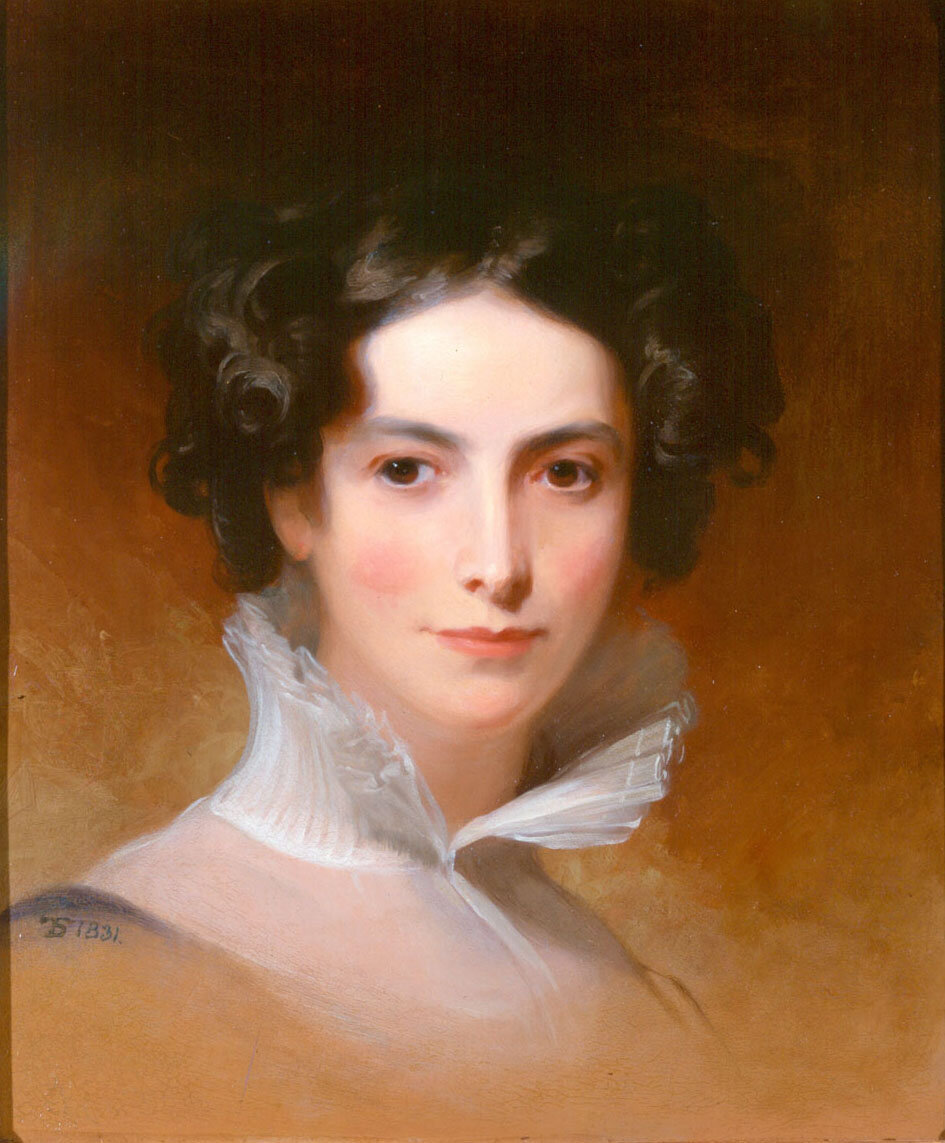A City Filled to the Brim with Historic Rebeccas
At Beyond the Bell Tours, we are fond of Rebeccas. There’s our co-founder and tour guide, Rebecca Fisher, for starters.
When we began creating our tours, we noticed a trend: number of significant Rebeccas in Philadelphia's history. This realization led us to ask the question: What is the threshold of having too many Rebeccas on a tour?
No, we’re not talking about Beckys. We're talking real Rebeccas. We’re hoping you can help us out here.
Here are some of the contenders. We've presented them in alphabetical order, because it’s impossible to rank their level of awesomeness otherwise.
1. Rebecca Cole
The second African-American woman to receive an M.D in America, Rebecca J. Cole received her degree at the Woman's Medical College of Pennsylvania in 1867.
Born in Philadelphia, in 1873 Cole started a Women's Directory Center to provide medical and legal services to poor women and children. Her work serving this population led her to challenge W.E.B DuBois’s conclusion in The Philadelphian Negro that African-Americans were dying to due to their lack of knowledge about healthcare and hygiene. Instead, Cole asserted that the population’s high morbidity rates were a result of white doctors not listening to and taking into account patients full medical histories, a reality that remains to this day.
Rebecca Cole was a trailblazer in every sense of the word.
2. Rebecca Lee Crumpler
Rebecca Lee Crumpler was the first African-American woman to receive an M.D. in the United States. Born in Christiana, Delaware, in 1831, she received her degree from the New England Female Medical College. She initially practiced medicine in Boston, then after the Civil War moved to Richmond, Virginia, where she provided care to freed slaves whom white physicians refused to treat.
Crumpler published A Book of Medical Discourses in 1881, one of the first publications by an African-American about medicine, making her the only female physician author in the 19th century. The only. One. The work was dedicated to nurses and mothers about the care and health of women and children.
Her historic academic credentials, professional accomplishments, and work to serve underserved populations make this Rebecca a definite keeper on our tour.
3. Rebecca Gratz
Born in Philadelphia in 1781, Rebecca Gratz is known for her charitable work, civic leadership, and commitment to religious education. Gratz established the first independent Jewish women’s charitable society in the country, the first Jewish Sunday school, the Philadelphia Orphan Asylum, and the first Jewish Foster Home in Philadelphia after observing the plight of many Jewish immigrants in the 1850s.
Outspoken and well-educated for the times, Gratz never married, finding very few men to be an “agreeable domestic companion” for herself.
We hear you, Rebecca. We hear you.
Also if you can believe it, the photographer who took this picture is ALSO NAMED REBECCA (Rebecca McAlpin)
4. Rebecca Rutstein
Rebecca Rutstein is an artist who exists at the nexus of art, technology, and science. She is the recipient of several notable grants and fellowships, including the Pew Fellowship in the Arts and a Pennsylvania Council on the Arts grant. Rutstein’s work can be found in public collections including the Philadelphia Museum of Art, the Pennsylvania Academy of the Fine Arts, Temple University, Johns Hopkins Hospital, Albert Einstein College of Medicine and soon, it is rumored, on a wall in Philadelphia courtesy of the Mural Arts program. She also has interests in geology, microbiology and marine science that contribute.
Who says that you have to divide talents into art or STEM? Rutstein's diverse interests help remind us that art defies boundaries.
5. Rebecca Jackson
Born into a free family in 1795 in Hornstown, Pennsylvania, Rebecca Jackson experienced prophetic dreams and visions leaving her marriage to pursue her spiritual beliefs, joining a Shaker community in Watervliet, New York in 1847.
There is strong evidence that Shakers helped fugitive slaves escape to freedom, with one piece of documentation referring to Jackson working with a Shaker elder to help a fugitive slave enter Canada.
One journal entry refers to Jackson joining a Shaker elder to assist a fugitive slave as he fled to Canada.
Jackson began preacher Shaker doctrine in Philadelphia, which was a mixed race community of men and women that was the only such urban Shaker family, active until the first decade of the 20th century.
Do you see the conundrum from this stellar list of Rebeccas? Are there others we should consider? Let us know.
You can learn more about all the incredible Rebeccas of Philadelphia on one of Beyond the Bell Tours. Availability, booking, and further information can be found on our website.






